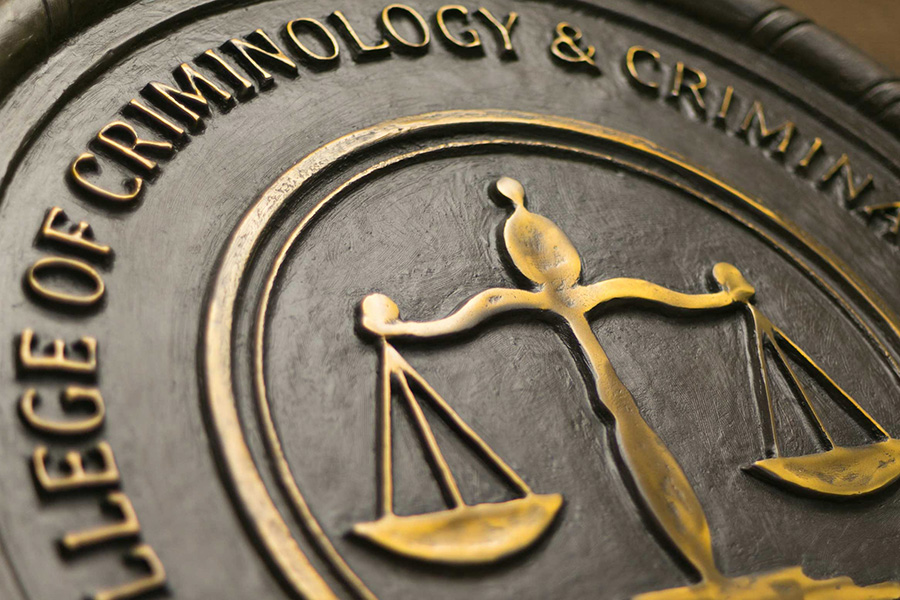Imagine a world without rules. A world where everyone acts solely on impulse, driven by their desires without consequence. It wouldn’t be a pleasant picture, would it? The chaos, the fear, the constant uncertainty. Fortunately, we have rules, laws, and a system in place to maintain order and protect our society. But what happens when those rules are broken? This is where the fascinating field of criminology comes in.

Image: news.fsu.edu
Criminology is the scientific study of crime and criminal behavior. It’s not just about catching bad guys; it’s about understanding the complex forces that drive individuals to commit crimes. From analyzing the psychological motivations behind a robbery to examining the social conditions that contribute to gang violence, criminologists delve deep into the human condition to unravel the mysteries of lawbreaking.
Delving into the Mind of a Criminal
At its core, criminology seeks to grasp the “why” behind criminal behavior. It’s not about finding excuses but about understanding the interconnected factors that can push someone towards a life of crime. These factors can be deeply personal, such as mental health issues, childhood trauma, or substance abuse, or they can arise from broader social structures like poverty, inequality, and discrimination.
The History of Crime
Understanding where we are today requires looking back. Criminology’s roots intertwine with the development of social sciences and the shift from supernatural explanations for crime to focusing on individual and societal factors. Early thinkers like Cesare Beccaria in the 18th century emphasized free will and punishment as deterrents, while later, theorists like Émile Durkheim proposed that crime was a normal part of society, serving a function in maintaining social order.
Understanding Theories and Perspectives
Criminology isn’t confined to a single perspective. It embraces a diverse array of theories, each offering a distinct lens to examine crime. Let’s explore a few key examples:
- Biological Theories: Focus on biological factors like genetics, neurochemical imbalances, or physical characteristics. They suggest that some individuals may be predisposed to criminal behavior due to their biological makeup.
- Psychological Theories: Explore the role of individual psychological attributes like personality traits, mental health issues, or cognitive biases in shaping criminal behavior. These theories delve into the internal world of criminals to understand their thought processes and motivations.
- Sociological Theories: Examine the influence of social structures, institutions, and cultural factors on crime. This perspective emphasizes the impact of poverty, inequality, and social disorganization on criminal activity.
- Social Learning Theories: Assert that criminal behavior is learned through interactions with others. These theories highlight the role of families, peers, and the media in shaping individuals’ attitudes and beliefs towards crime.

Image: www.youtube.com
Modern Criminology: Moving Forward
Criminology isn’t simply a dusty academic subject. It’s a constantly evolving field that adapts to the changing face of crime and society. Here’s a glimpse into some of the key areas driving its evolution:
The Rise of White-Collar Crime
Traditionally, criminology focused on street crimes like robbery and assault. But as societies have become increasingly complex and interconnected, so have criminal activities. White-collar crime, involving individuals with high socioeconomic status using their positions to engage in illegal activities like fraud, embezzlement, or corporate espionage, has become a growing concern. Modern criminology delves deeper into the nature and motivations of these crimes, exploring how power structures and corporate cultures contribute to their prevalence.
The Impact of Technology
The digital age has reshaped crime, leading to an explosion of cybercrime, identity theft, and data breaches. Criminology is adapting to this new landscape, studying the unique characteristics of cybercrime, the vulnerabilities of technology, and the challenges of enforcing justice in the virtual world.
The Intersection of Criminology and Mental Health
Increasingly, criminologists are recognizing the strong connection between mental health and criminal behavior. This has spurred research into the unique needs of incarcerated individuals with mental health challenges, the effectiveness of rehabilitation programs, and the role of mental health services in preventing future crime.
The Push for Criminal Justice Reform
In response to concerns about mass incarceration, racial disparities in the criminal justice system, and the effectiveness of current policies, criminology is actively involved in the movement for criminal justice reform. Researchers are examining alternative sentencing options, re-entry programs for released prisoners, and restorative justice practices aimed at addressing the root causes of crime and promoting community healing.
Putting Criminology into Practice
Criminology’s value extends far beyond the confines of academic studies. It empowers professionals and everyday citizens with the knowledge to understand, prevent, and respond to crime more effectively:
- Law Enforcement: Criminological research informs police strategies, prioritizes crime prevention efforts, and helps officers develop a deeper understanding of the individuals they encounter.
- Lawyers and Judges: Criminological evidence helps inform legal arguments and sentencing decisions. It allows them to consider the complexities of criminal behavior and the potential impact of different sentences.
- Social Workers and Educators: By understanding the root causes of crime, social workers and educators can design effective interventions for at-risk youth, provide support to families facing challenges, and promote community development initiatives that foster safety and well-being.
Criminology Is The Scientific Study Of
A Future of Understanding
Criminology is far from a static field. It is a journey of continuous learning, adaptation, and innovation. By deepening our understanding of crime, we can move towards a safer, more just, and equitable world for everyone.
In a world filled with complexity and uncertainty, criminology provides a framework for understanding human behavior, navigating the grey areas of right and wrong, and building a safer future. It’s not about condemning the criminal; it’s about understanding them, understanding our society, and working towards a better tomorrow. Let’s keep asking questions, exploring new perspectives, and collaborating to cultivate a society that values justice and empowers all its members.
Take the first step in your journey of understanding criminology and the complexities of human behavior. Share your thoughts and experiences in the comments below. What are some of the most compelling questions you have about crime and criminal behavior?






